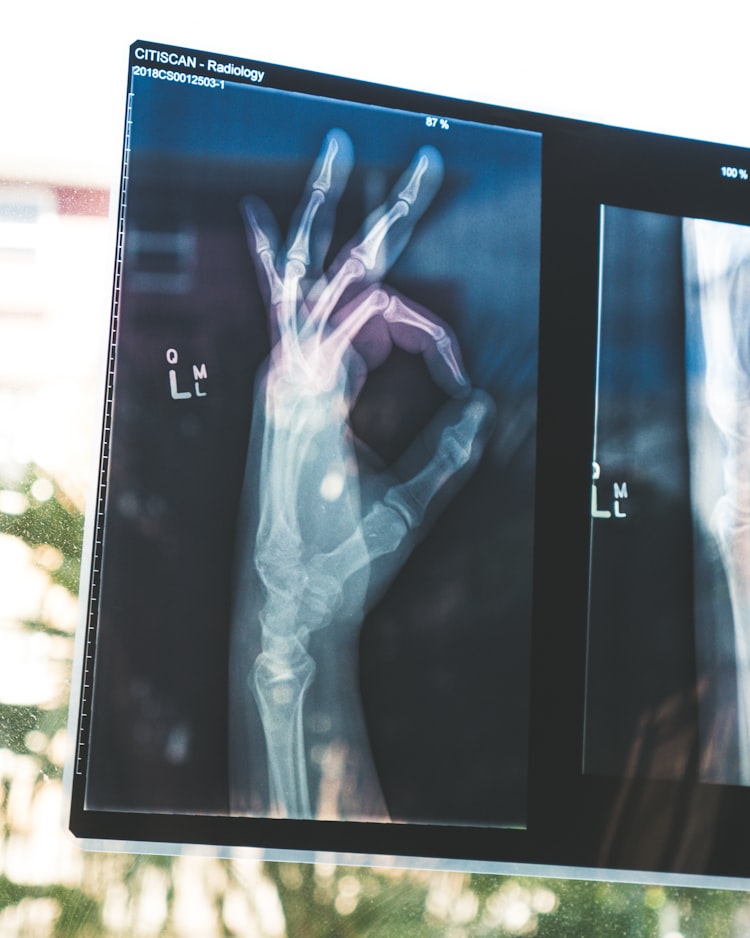Pre and Postnatal Care, According to Ayurveda

The choice to bring a child into the world should not be taken lightly. It is an extraordinary responsibility. It is a true miracle. It is an absolute blessing. And, it is a lot of work! Ayurveda places a lot of emphasis not only on the birth and raising of the child, but also on the preparation before the baby is even conceived. As one of Ayurveda's main aims is on prevention, it makes total sense that such emphasis is placed on preparing the body, mind, and spirit of both the mother and the father prior to conception. There are also guidelines for prenatal and postnatal care, which I will outline below.
Prior to Conception
Before the journey of conception begins, it is important to take stock of both the mother and father and their physical bodies, mental state, and emotional state. Any imbalance, either physically, mentally or emotionally has the power to be passed down to the baby. These could be things like: excess weight, uncontrolled medical conditions, anxiety, fits of rage, unprocessed grief, any condition where the doshas are out of balance would first need to be addressed. It is important to pacify these imbalances prior to conception. This can be done through various cleansing techniques, such as panchakarma, herbal therapies, and talk therapy. Once the body is properly cleansed it is important to begin rejuvenation therapies to nourish the body and womb. These therapies can include herbal preparations, meditations and chants, proper nutrition, appropriate actions the nurture the body. Pregnancy and postpartum are both vata times of life, so, a general rule of thumb is to follow the guidelines that nourish vata. Things like: regular routine, warm cooked soup-like foods, slowing down, reducing the intensity of activities and so on. To quote my teacher, Dr. Asmita “just as a healthy seed bears healthy fruit, if the parent’s sperm and ovum are ‘pure’ then the child is more likely to inherit a strong body constitution and immunity.” On the other hand, if the child is conceived when there is a weakness or state of dis-ease in either parent, it is likely that weakness may negatively impact the child. Once the parents have been properly cleansed, rejuvenated and doshas brought back into balance, then the conception process can begin.
Conception
According to Ayurveda there are four essentials for conception. These are: ritu/season, kshetra/soil, ambu/water, and beeja/seeds.
Ritu or the season can be understood as time. Understanding ovulation based on the menstrual cycle and the literal season of conception. In general, it is ideal to conceive in the spring. As in the microcosm, is in the macrocosm, and vice versa. During the springtime, the earth is full of growth. The seeds are budding, eggs are being cared for by various birds, new life is literally all around us! The same can be said for the mothers womb.
Which brings us to kshetra or soil. This refers to the woman, the health of her whole body and the health of her uterus. The uterus will be the home of the embryo. A safe, healthy home will greatly impact pregnancy and birth. The time in the womb helps to determine the baby's prakriti, or individual constitution.
Ambu or water relates to the blood supply of the uterus. There needs to be an appropriate level of balance between movement and rest. Ayurveda recommends that the pregnant mother lay down for 10-45 minutes a day with their feet up to encourage blood supply to the uterus. Although day time naps are generally discouraged, during pregnancy a mother may nap for up to two hours during the day, as needed.
Beeja or seeds refers to the best quality of sperm and ovum. The formation of the embryo or garbha, is said to be one third the mothers ovum, one third the fathers sperm, and one third of the baby’s soul. This combination forms together to create a new life. It is believed that the baby will choose their parents, taking with them their (the baby’s) past life karmas.
In general, during a pregnancy the mother should abide by the following recommendations:
- Always try to be in a happy mood. Do not let negative or fear based emotions of thoughts consume you. As we digest and assimilate everything in our environment it is important to avoid scary movies, intense situations, gossip and drama. Focus instead on emotions and feelings of gratitude, love, peace.
- Focus on a vata pacifying diet. Avoid heavy to digest foods, spicy foods, alcohol and fermented foods, ice cold drinks, leftovers, greasy foods, processed sugar as these all can extinguish the digestive fire. Focus instead on warm cooked soups, lentils, foods that are easy to digest and ghee. The mother can also listen to her cravings, however bizarre they may be and consume the foods, while still paying attention to incompatible food combinations.
- Regular oil massage with sesame oil. This can be done while listening to gentle music, chanting or saying prayers and affirmations to yourself and baby.
- Regular routine with proper meal spacing.
- Balanced action between physical activity and rest.
Birth
As the birth approaches, it would be appropriate for the mother to take additional rest when needed. Once labor has begun it is again important to nourish the woman with support and care. Labor can be a long journey for the mother and baby. Both parties working together for the baby to travel through the birth canal and join us Earthside. Once the baby is born and at the time of first breath, the baby’s constitution is set. Following the birth of the placenta the woman takes on the name sutika or perpetual woman and the sootika paricharya or postnatal care begins.
Ayurveda has 8 considerations for postpartum care. They include:
- Vatashamana: fortifying the body, or rebuilding through vata pacifying actions
- Agni: giving attention to the internal digestive fire and improving digestion
- Pachana: appropriate herbal preparations
- Rakta: focusing on the care of the blood of the mother, increasing the iron level
- Stanyavardhana: herbs specific for the production and quality of breast milk
- Yoni: vaginal health and care
- Gargbhashayashodhaka: herbs to cleanse the uterus
- Dhatupusti: rejuvenation back into the body and nourishing all bodily tissues
In all of the considerations listed above the aim is to restore the mother’s physical and mental fatigue. In general, things like body massage, belly binding, vata pacifying foods that have a soup like consistency, broths or meat soups, and adequate rest will be of utmost importance during the postpartum period. This postpartum time is governed by vata. There is a large wound and literal hole inside of the mother. This large opening provides the ability for vata to enter and overflow into other parts of the body. Belly binding and adequate rest are hugely important factors to not overlook. As a minimum for a normal vaginal birth it is recommended that the mother rest for 3 months. In the case of a cesarean delivery or delivery with complications, rest should be at minimum 4 to 5 months.
Following the birth of the baby, the mother should avoid exercise, sexual intercourse, mental and physical stress, cold things like water and cold winds, and feelings of anger. Ideally, the baby is in physical contact with the mother as much as possible. As an infant is in the kapha stage of life, simply letting the baby rest on the mother will help to pacify the vata dosha and build the bond between mother and baby. If these protocols are followed, the mother will come out of this postpartum period with more luster, strength, health, and confidence. Nourish the mother to nourish the baby and both mother and baby will be vibrant and strong.





